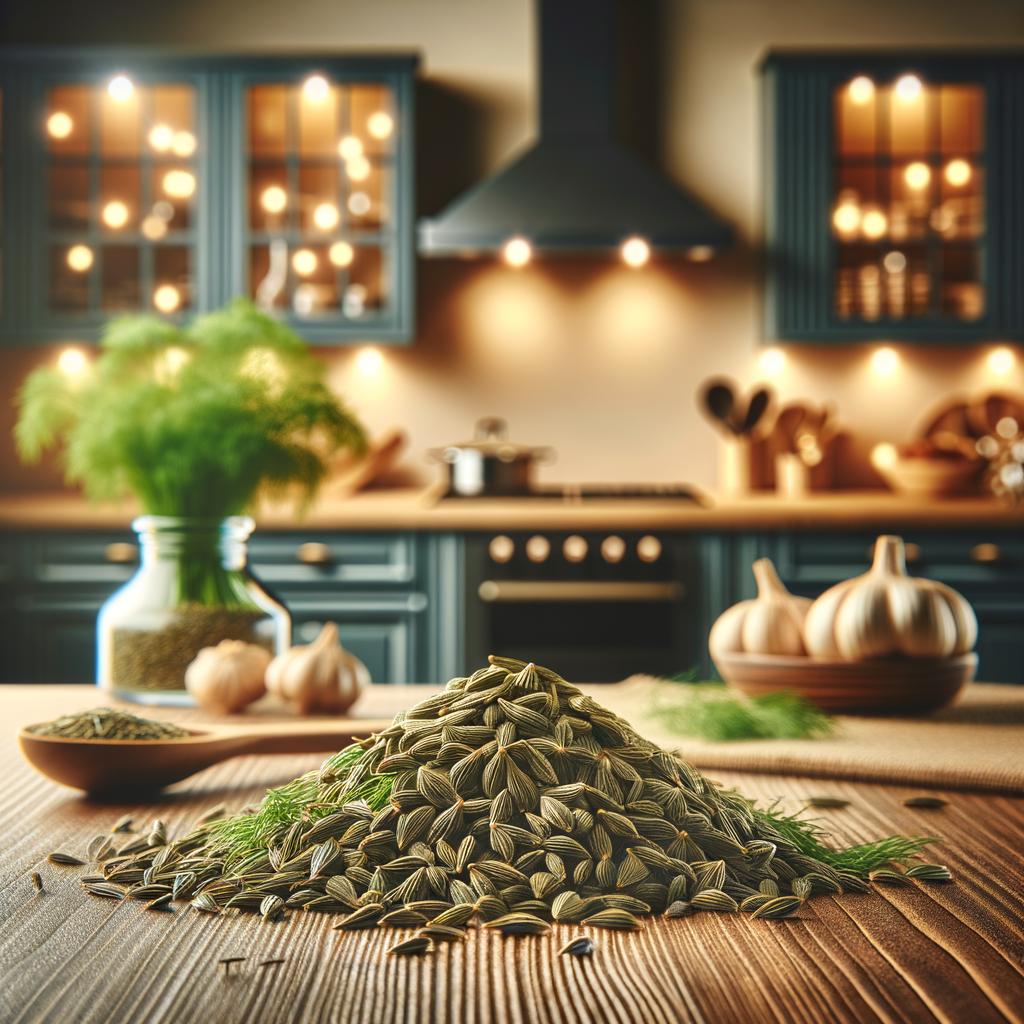Dill Seeds

Description Dill seeds, the small, oval-shaped seeds of the dill plant, are a culinary gem that many are yet to fully discover. They are a wonder to behold, boasting a light brown color that glimmers in the sunlight, and a striated texture that feels like tiny ridges under the fingertips. These seeds carry a flavor profile that's a symphony of tastes - they start off with a slightly bitter note, then blossom into a warm, sweet flavor with a hint of anise. But what truly sets dill seeds apart is their unique, aromatic scent, reminiscent of caraway and fresh-cut grass, a characteristic that makes them an irreplaceable ingredient in many dishes.
Primary Uses Dill seeds are a versatile ingredient, used in a variety of culinary applications. They are a key component in many European and Asian cuisines, most notably in pickling recipes where they add a distinctive tangy flavor. In Indian cuisine, dill seeds are often used in lentil dishes and breads, while in Scandinavian countries, they're commonly used in fish dishes. Apart from culinary uses, dill seeds also have medicinal uses. They have been used traditionally to aid digestion, and recent studies suggest they may have antimicrobial properties.
History The history of dill seeds is as rich as its flavor. They have been used for culinary and medicinal purposes since ancient times. The Romans regarded dill as a symbol of vitality and used it in wreaths and garlands. During the Middle Ages, dill was believed to hold magical properties and was used in love potions and protective charms. Over time, its use has evolved, and it’s now appreciated for its culinary versatility and health benefits. Dill seeds are also associated with a charming folklore: it is said that carrying a bag of dill seeds will bring one good fortune.
Nutritional Information Dill seeds are not just flavorful, they're also packed with nutritional benefits. They're a good source of minerals like calcium, iron, and manganese, and they also contain dietary fiber and essential oils. They have a higher concentration of dietary fiber compared to similar seeds like caraway or fennel, making them a good choice for digestive health. However, like all seeds, they should be consumed in moderation because of their high calorie content. The health benefits of dill seeds include aiding digestion, reducing inflammation, and potentially helping to control blood sugar levels. Their rich, unique flavor and health benefits make them a delightful and nutritious addition to your diet.

